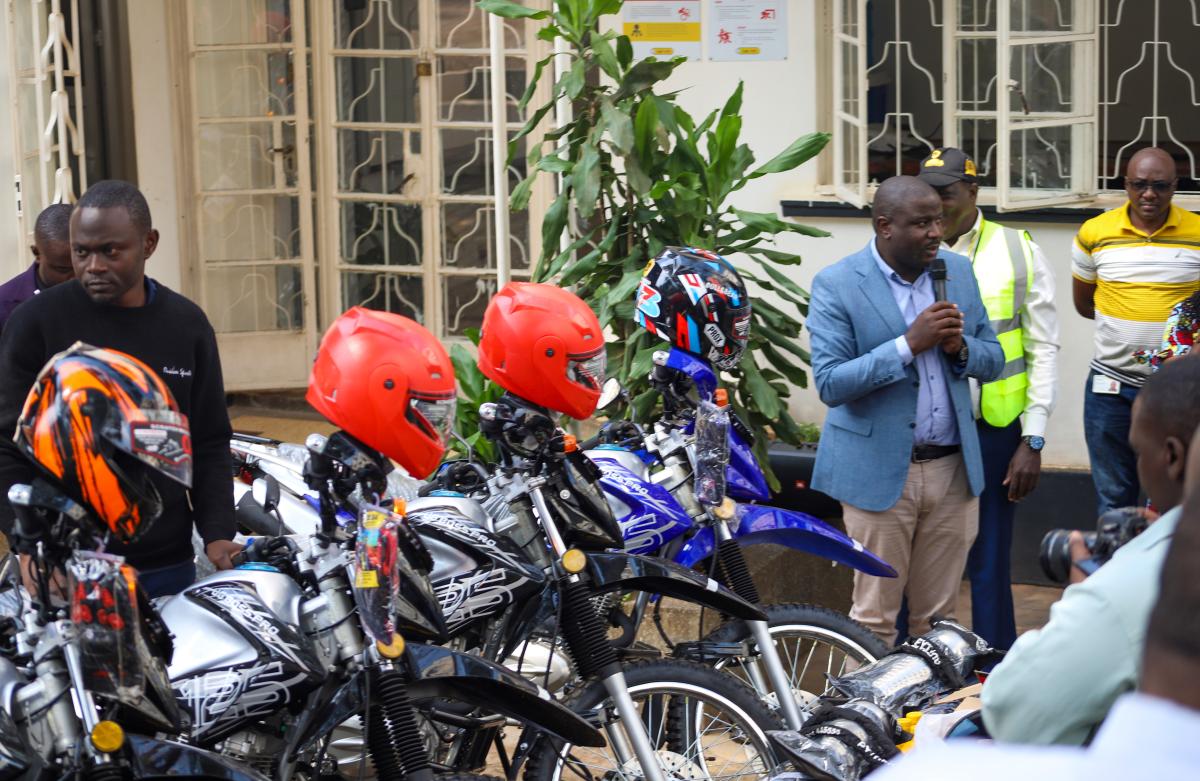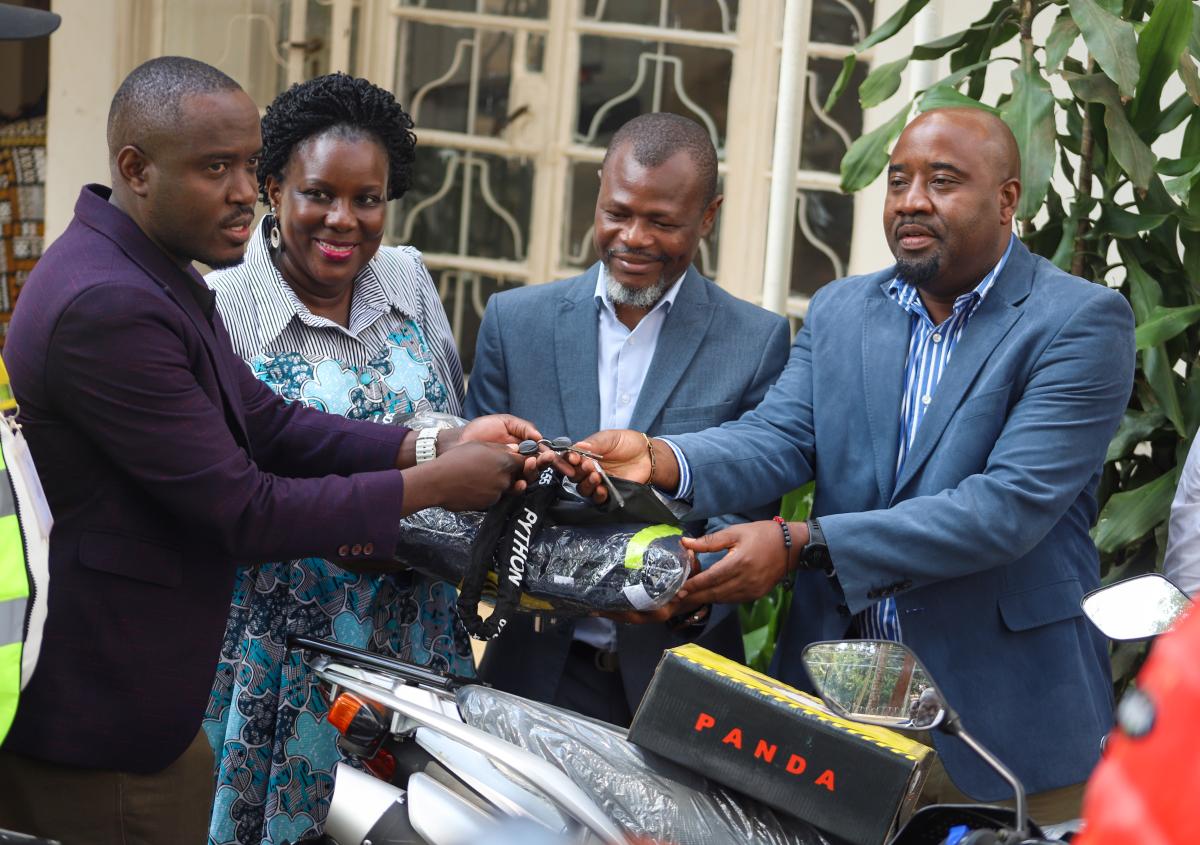Local Governments equipped to advance business and human rights in Uganda
Uganda has made notable progress in promoting
Business and Human Rights (BHR), including developing a National Action Plan to
promote responsible business conduct that respects human rights. However, local
authorities in key regions such as Busoga, Albertine, and Kampala Metropolitan
face operational challenges such as limited transport, poor documentation, weak
Information, Communication, and Technology (ICT) systems, and delayed
reporting, which hinder effective monitoring and response to business-related
human rights issues.
To address these gaps, the Ministry of
Gender, Labour and Social Development, and Enabel, through the Advancing
Respect for Human Rights by Businesses in Uganda (ARBHR) Project, have provided
essential equipment to local government Business and Human Rights focal points.
The equipment will enhance their effort to conduct field inspections, engage
with communities, document violations, improve data collection, and support evidence-based
decision-making.
The equipment-17 laptops, 1 desktop, 8
heavy-duty printers, and 4 motorcycles- was handed over to officials from 12
districts within the project implementing regions of Busoga, Albertine, and
Kampala Metropolitan. The handover took place at the Enabel Head office in
Kampala and was led by Mr. Benard Mujuni, the Commissioner for Equity and
Rights (Ministry of Gender, Labour and Social Development).
Speaking at the event, Mr. Mujuni said that
limited transportation and data tools have hindered the work of district staff.
“Many of our officers on the ground face difficulties in accessing remote
communities and properly recording case data. This equipment will go a long way
in addressing those challenges,” he said.
District officials, led by their Chief
Administrative Officers (CAO), received the items and were trained on how to
use them safely and effectively.
Rose Athieno, Country Strategy Advisor at
Enabel, noted that the initiative marks a milestone in implementing Uganda’s
National Action Plan on Business and Human Rights (NAPBHR) at the district
level. “These tools will facilitate the
local government officials to access hard-to-reach areas, and to monitor human
rights issues in workplaces,” she added.
The handover is part of the European Union
funded initiative to reduce human rights abuses linked to business,
particularly those affecting women and children. It supports Uganda’s 2021
National Action Plan on Business and Human Rights (NAPBHR), and aligns with
Vision 2040 and the UN 2030 Agenda for Sustainable Development.
This strategic investment in mobility and
technology reinforces efforts towards Business and Human Rights enforcement at
the grassroots level. Strengthening local governments with the tools reaffirms the
commitment to inclusive, rights-based development. With empowered local actors
at the forefront, the path toward ethical and responsible business conduct
across Uganda looks more promising than ever.
Dernières actualité de ce projet
Pas d'actualité



